
Between the endless customizations and decades of strength, the cost of a concrete driveway may be worth the investment. Let's break down your bottom line.
Take the wheel and know your driveway materials


Your driveway’s design should never be an afterthought. Choosing the right material for the look of your home and your city’s climate can boost your curb appeal and make the segue from home to street elegant and eye-catching.
Here are the best materials for various driveway types and the factors you should consider before committing to one.
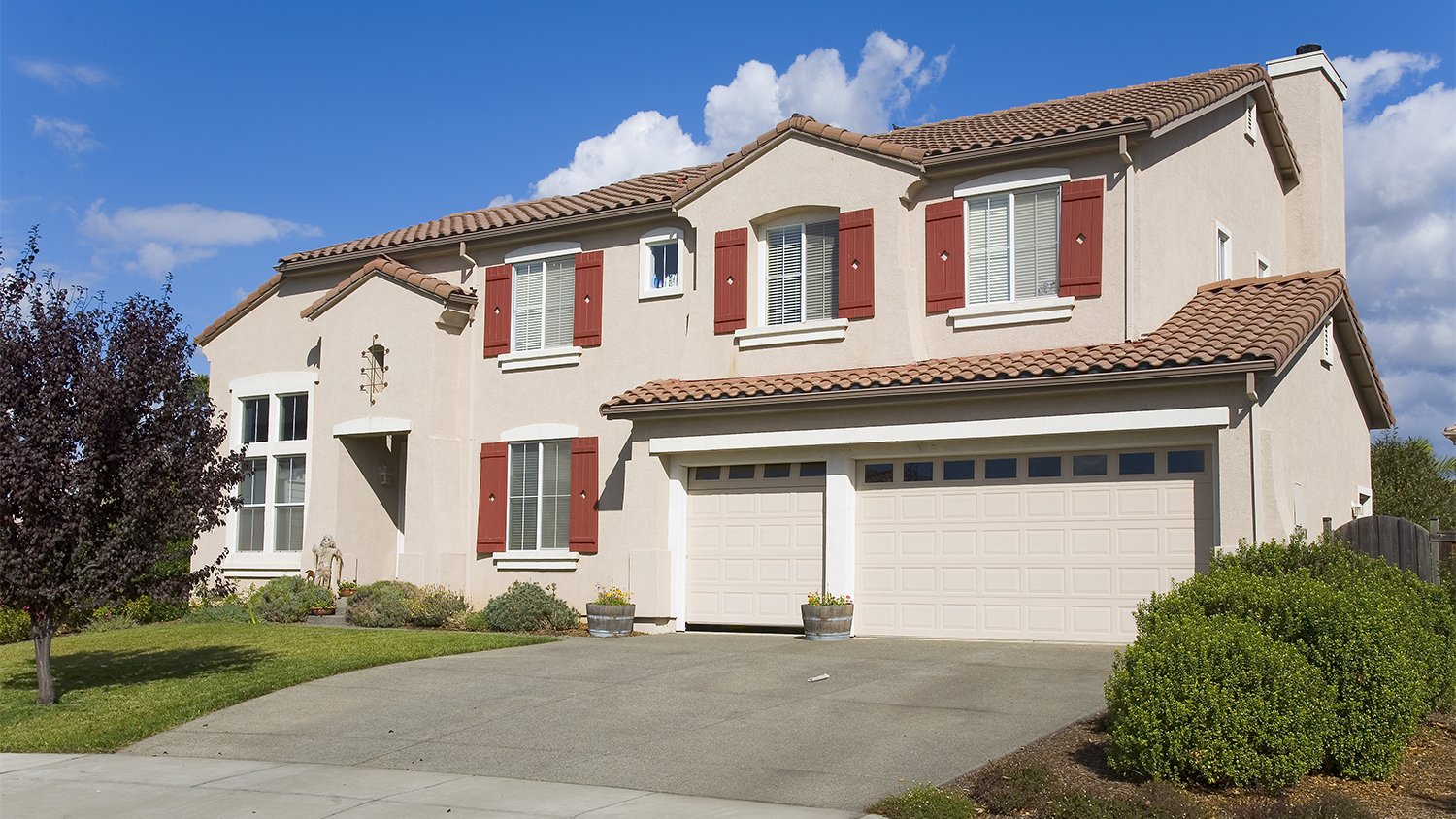
A concrete driveway is durable and cost effective. Concrete driveways cost $8 to $18 per square foot and should last you 40 years. You can use this material to design a driveway in most locations since it stands up well against harsh weather conditions. However, it comes with its drawbacks as well, like the fact that it can crack in extremely cold conditions.
Durable
Cost effective
Abundant design options
Long lifespan
Can crack in extremely cold environments
Oil, grease, and more can leave stains
Difficult to repair
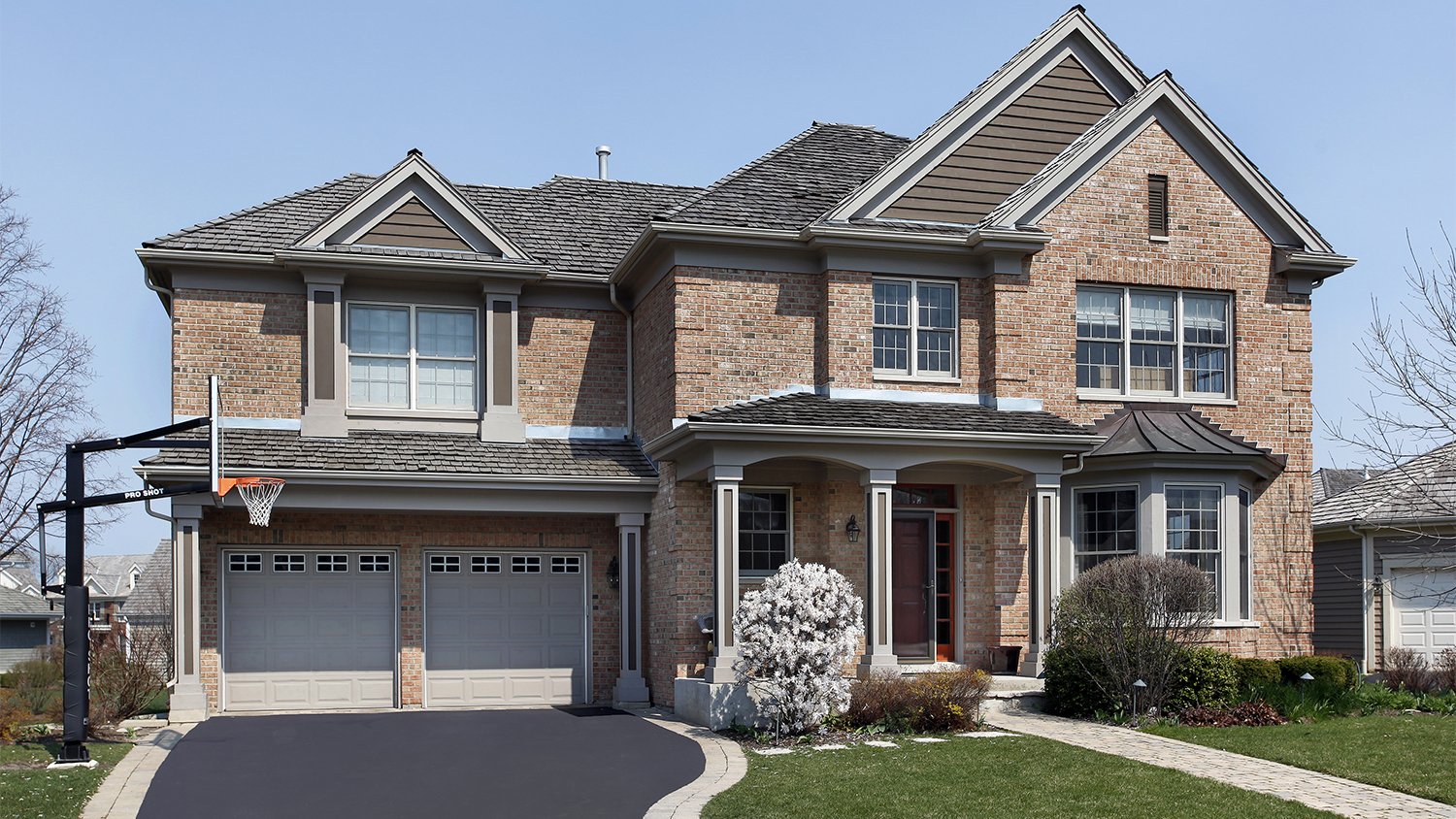
Asphalt is a great option for those who live in colder climates and costs $7 to $13 per square foot. However, we don’t recommend it if you live in a warmer place, as it softens when temperatures rise, sticking to shoes and tires. It will last approximately 15 to 20 years, but an asphalt driveway contractor must seal it every three to five years.
Great for cold climates
Relatively affordable
Crack-resistant
Easy to repair
Short lifespan
Sensitive to heat and sun exposure
Not very stain-resistant
Limited design options
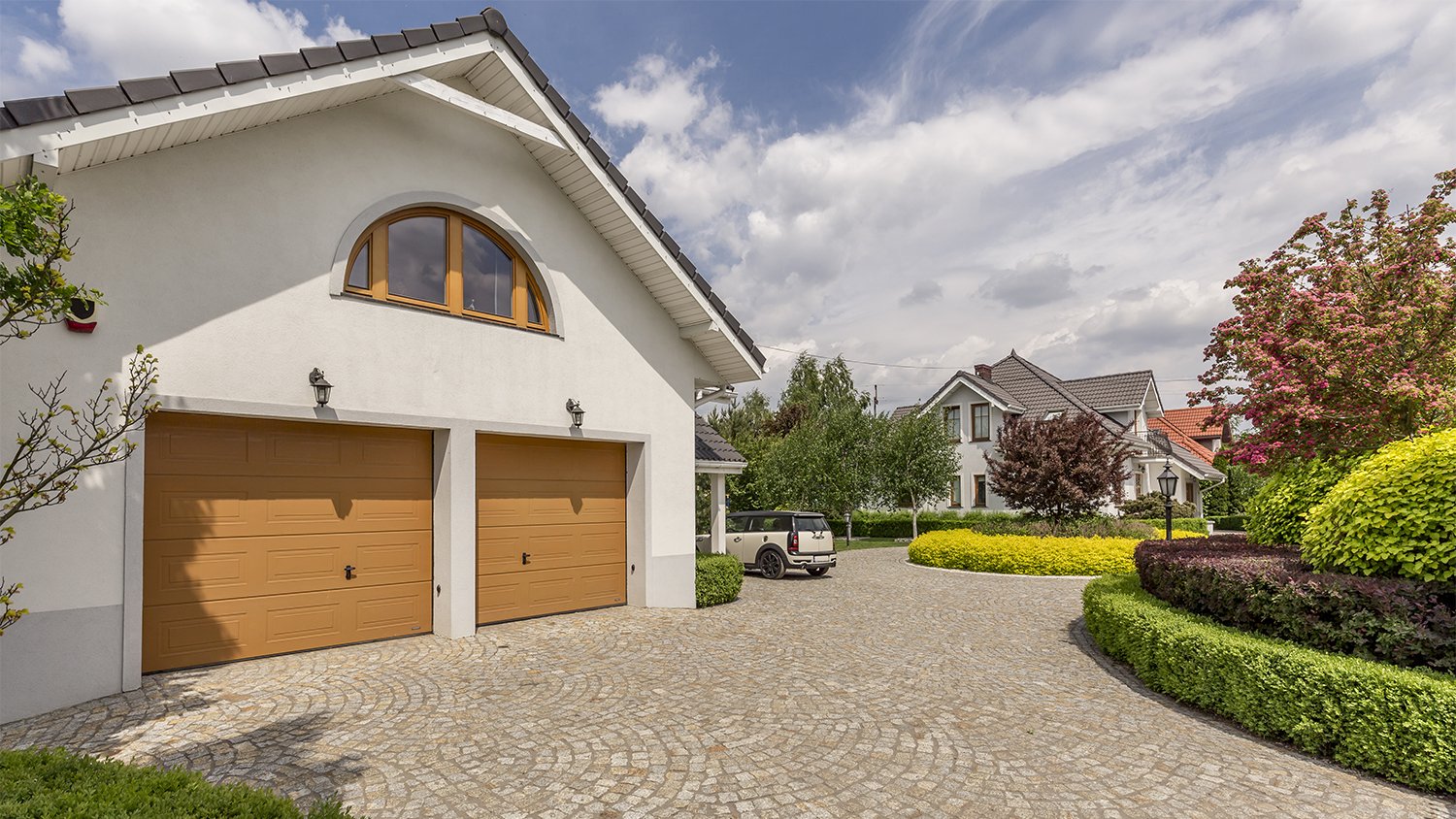
Costing an average of $10 to $50 per square foot, pavers come in a variety of colors and styles, and you can arrange them in an endless array of patterns, boosting your curb appeal. Besides brick, pavers are commonly made from natural stone, marble, and cobblestone, and they can last as long as 50 years. However, paver installation can take a long time, so the labor costs can be higher than other materials listed here.
Many design and style options
Long lifespan
Durable
Easy to repair
Weeds can grow in cracks
Expensive
Long installation times
More difficult to remove snow and ice from pavers than smooth surfaces
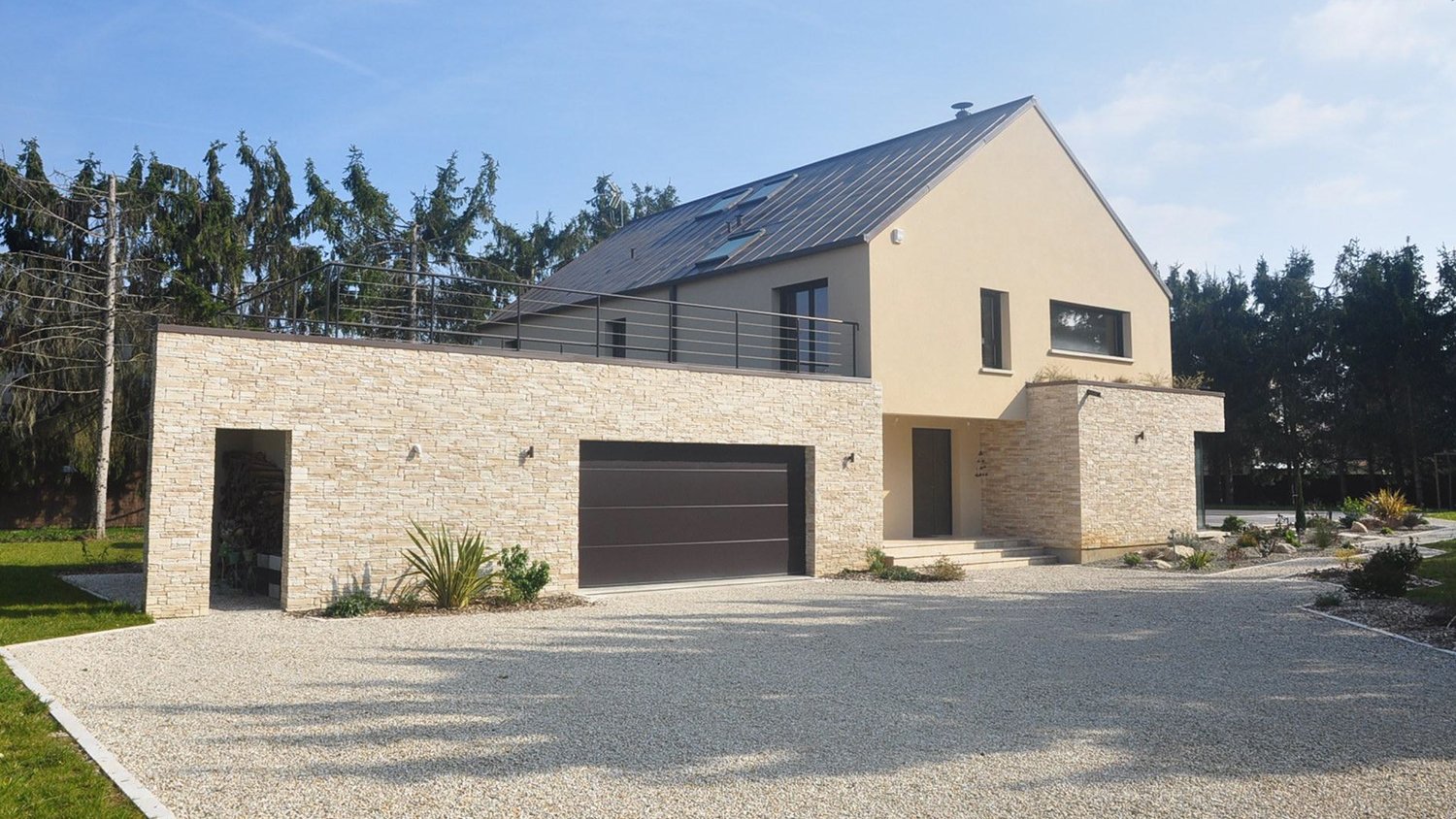
Virtually indestructible, gravel can last 100 years or more. It’s also a very affordable option, coming in at $1 to $3 per square foot, and you can purchase it in different colors to create unique designs. It’s also a natural material, making it a good choice for those concerned about environmental impact, but it isn’t ideal if you live in a snowy region as it’s very difficult to clear the powder off.
Very long lifespan
Highly affordable
Natural material
Durable
Offers natural drainage
Easy to install and maintain
Susceptible to dust and erosion
Difficult to remove snow and ice
Limited traction
Weeds can grow in the cracks
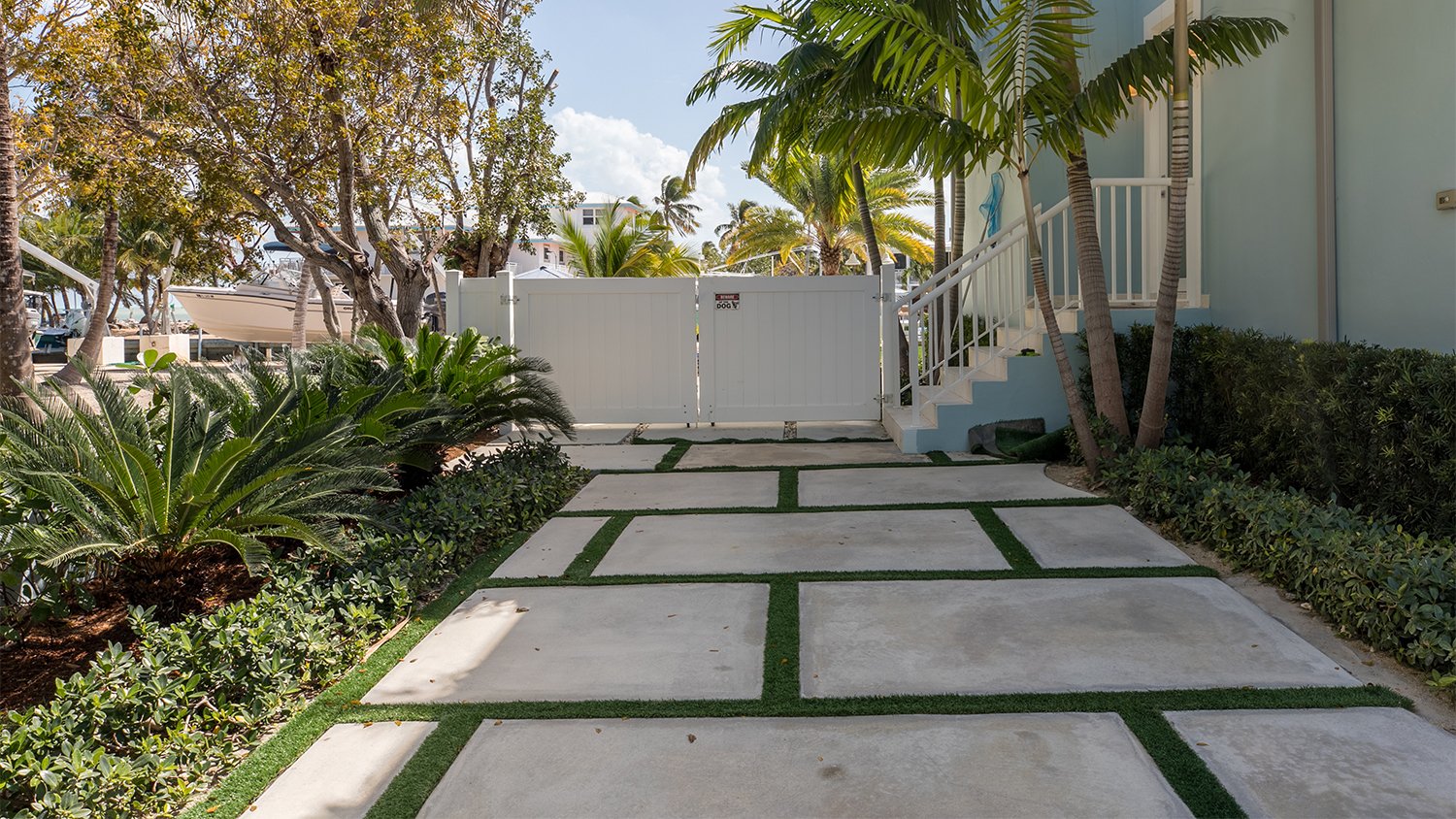
Permeable driveways allow water to pass through, or permeate, into the ground. They’re commonly made of turf installed between widely spaced pavers and cost around $10 to $15 per square foot. Since they’re permeable, these driveways reduce stormwater runoff and help to replenish groundwater and local aquifers. Depending on their style and materials, permeable driveways usually last between 20 and 30 years. Proper installation is key for these driveways, so you’ll definitely want to hire a trusted local driveway paving company to install it.
Replenish groundwater and aquifers
Improve water quality
Reduce stormwater runoff
Not durable enough for heavy traffic
High maintenance
Challenging to install
Now that you’ve learned more about the materials themselves, you can narrow down your perfect driveway material further based on your biggest priorities. Consider these important factors before making your final decision.
If you’re on a budget, you might be somewhat limited in your options. Gravel, asphalt, and concrete are some of the most affordable options.
Some driveway materials are not suitable for the cold, and some get sticky or uncomfortable under the summer sun. Select a material that will withstand the harsh temperatures you experience in your neck of the woods.
If you want to set it and mostly forget it, concrete is a solid low-maintenance option. The beauty of turf is alluring, but it will require frequent watering and grass care. Decide how much maintenance time you’re willing to commit to your driveway.
Consider what you’ll use the driveway for. For instance, if you’re planning to shoot hoops on your own driveway basketball court, then you probably don’t want a bumpy gravel driveway. Or if your driveway sees a lot of traffic, the relatively low durability of permeable driveways might not be a great fit.
Which material will look best and pair well with your home’s design? Some materials, such as pavers or turf, offer many design options, while others like concrete are more limited.
From average costs to expert advice, get all the answers you need to get your job done.

Between the endless customizations and decades of strength, the cost of a concrete driveway may be worth the investment. Let's break down your bottom line.

Whether you’re planning on putting in a concrete driveway, patio, or staircase, use this concrete delivery cost guide to get an accurate estimate.
Need to breathe new life into your exterior stoop? Use this guide on concrete step repair cost to see the price of a professional repair.

It’s important to choose the right driveway material. Learn the differences between gravel and concrete driveways to choose the right one for your home.

A concrete floor provides a solid base for any room, and adding a floor coating makes it feel less utilitarian. Here are the questions to ask a pro about this project.

Precast concrete can save you time and money on your construction project. Learn more about precast concrete to decide if it’s right for your project.